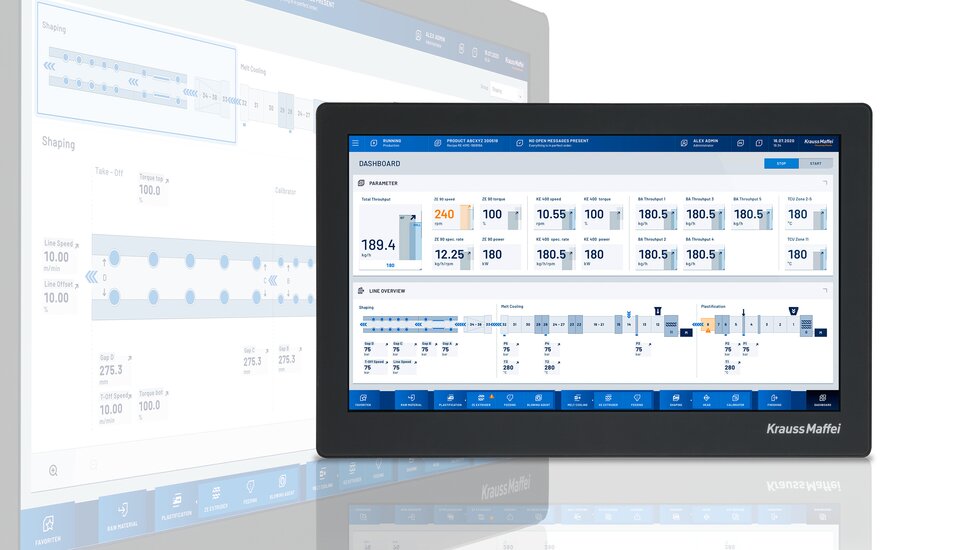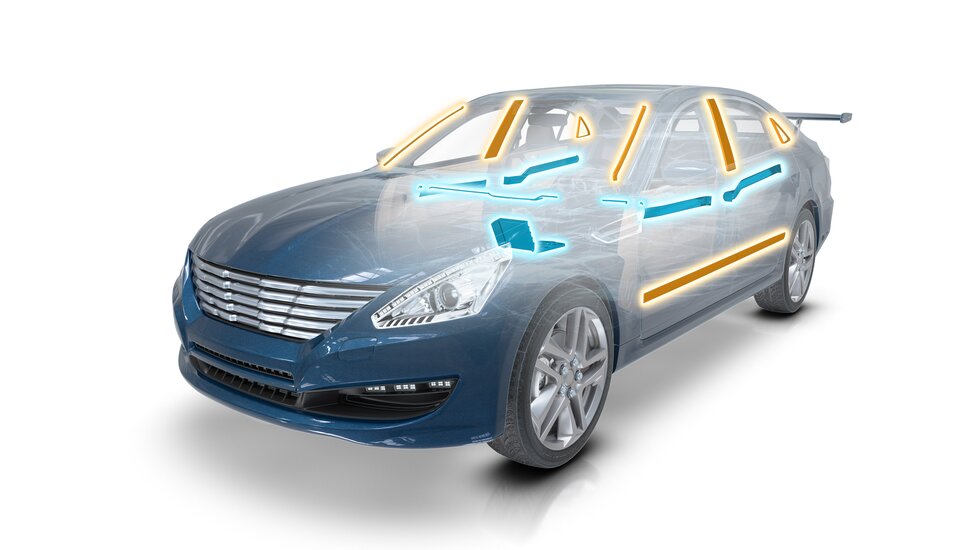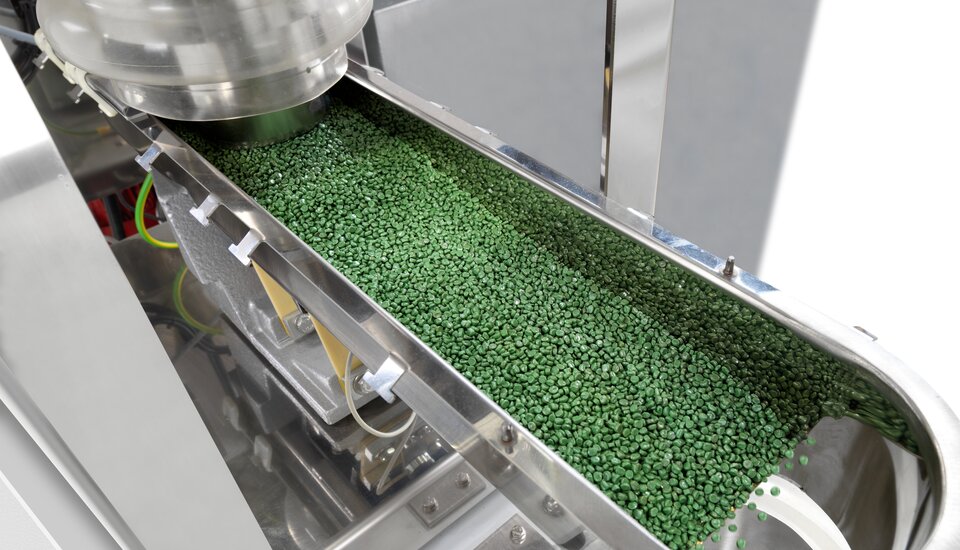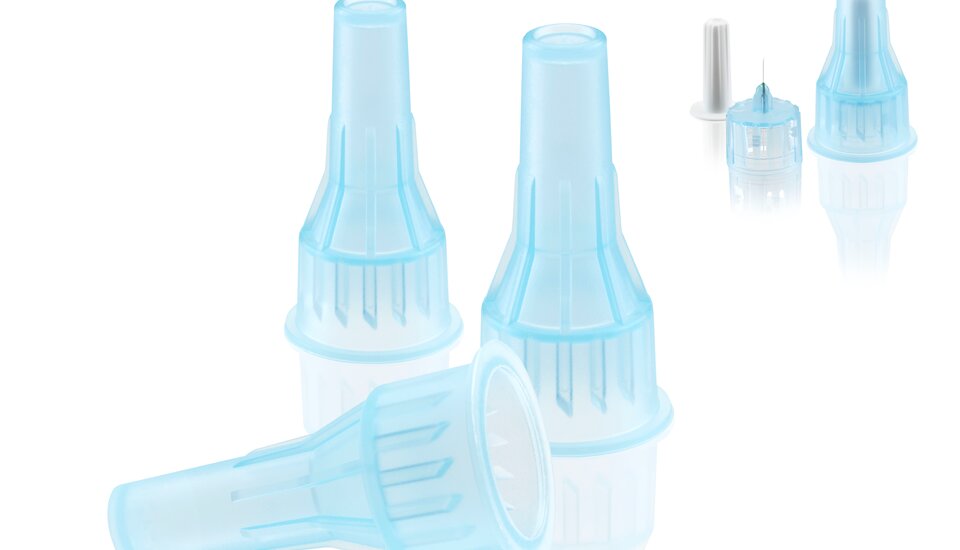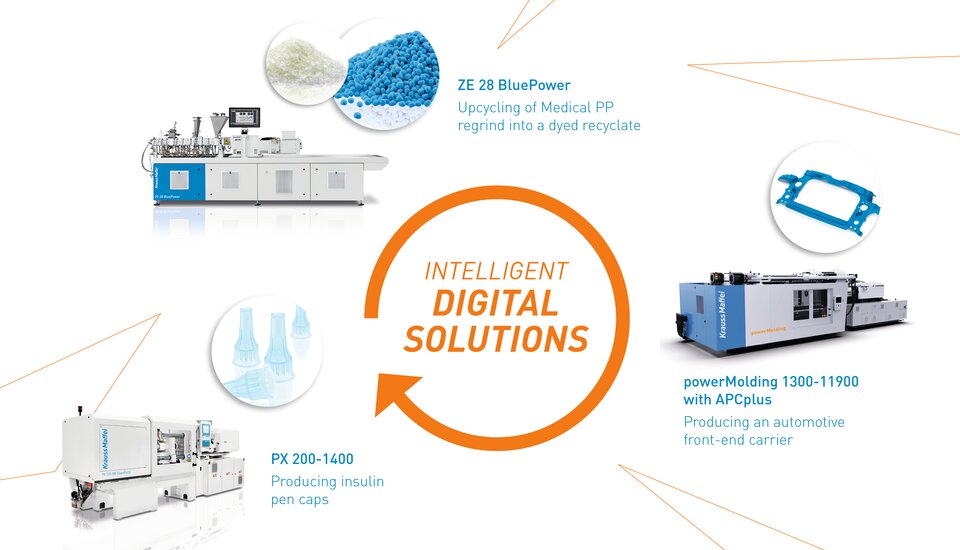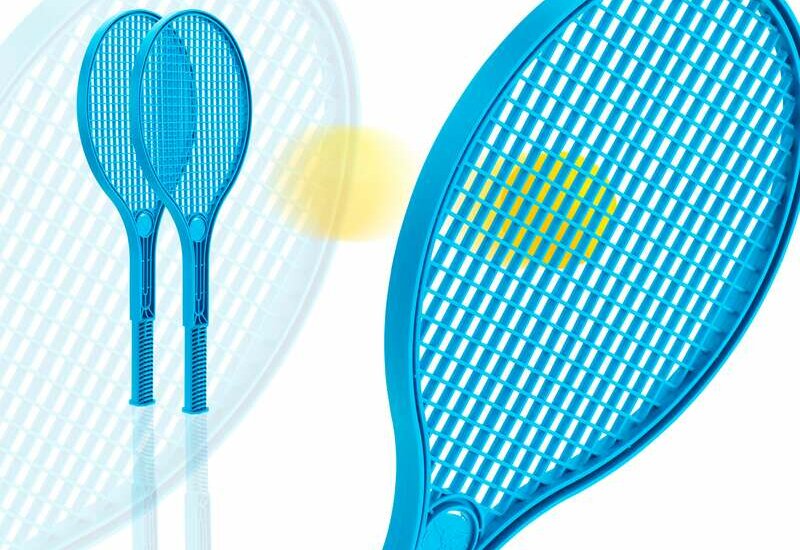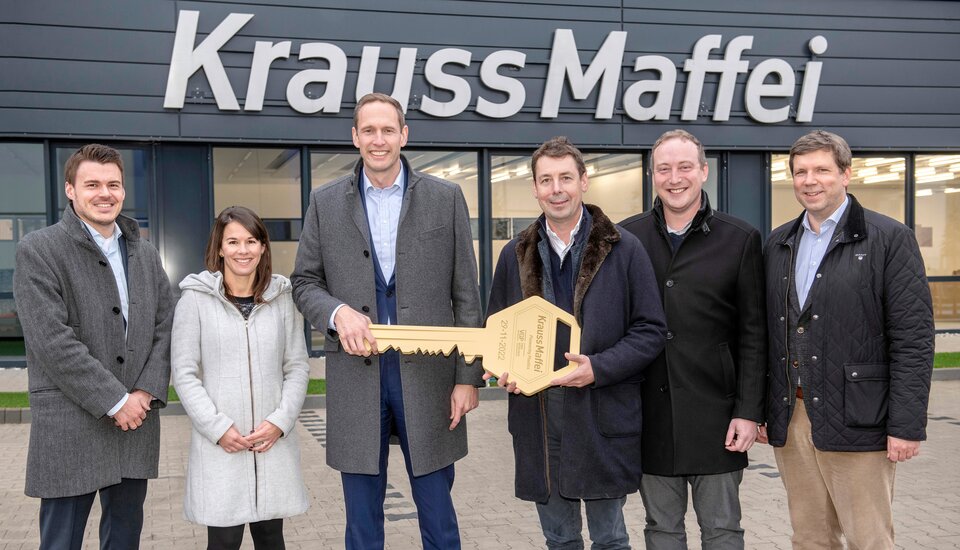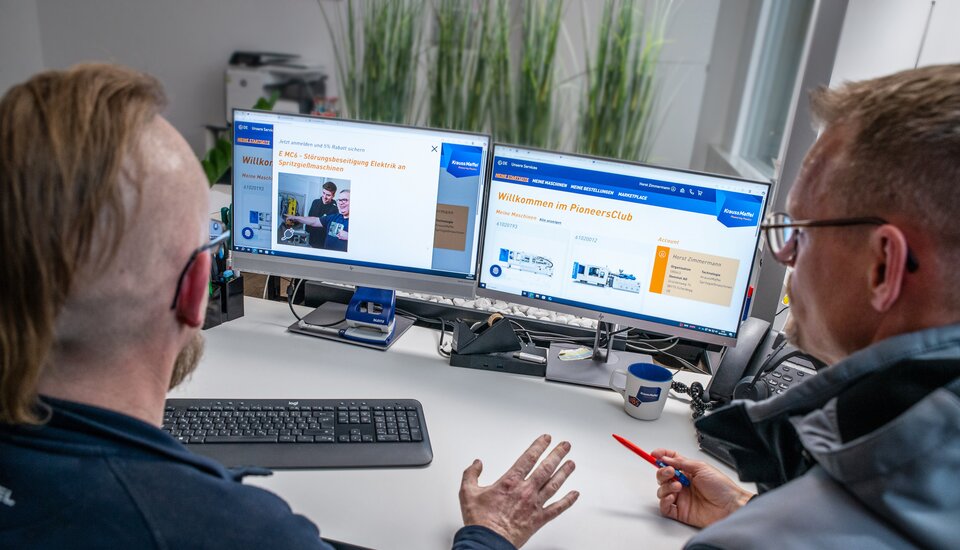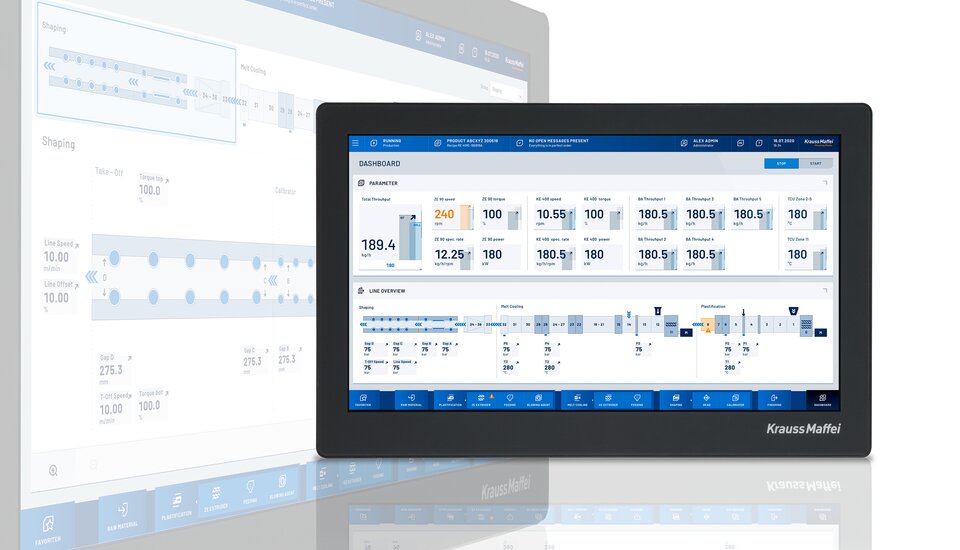
Processes & Products
More precision for sensitive fast curing compounds
| Nicolina Topic, Cordula Wieland, Jan Hirz
APC plus now also available for thermosets
They offer high stiffness, are heat and chemically resistant and flow freely into the machine: we are not talking about high-performance thermoplastic resins such as PEEK or PPS, but thermoset polymers. For processing these challenging materials, the large series specialist Baumgarten automotive technics employs the APC plus machine function from KraussMaffei. As a result, rejects have fallen significantly.
Since 2017, two production lines at the automotive suppliers’ headquarters in Burbach, Germany, have been operating with APC plus from KraussMaffei (APC = adaptive process control). The machine function analyzes the current process state and continuously compares it with the learned reference curve. The changeover point and holding pressure profile are automatically adapted according to the mass pressure.
Less fluctuation in the cavity pressure signal
Even before APC plus was introduced, Baumgarten already monitored the cavity pressure as the main quality criterion and, inline, automatically rejected parts with values that deviate too much. A 48-hour test (24 hour without and 24 hours with APC plus) has now shown that, with activated machine function the range of cavity pressure variation is significantly reduced.
Same OFT value – but different material behavior
The aim is to use APC plus to investigate other phenomena, too, in the future. What happens if the viscosity index changes strongly, but the part has the same quality criteria? What takes place in the process, then? Realistic analyses such as these are much more valuable for processors than test methods such as the orifice flow test (OFT), which takes place outside the machine.
Volumetric filling of the cavity remains constant
APC plus compensates possible fluctuations in the melt temperature or residence time which can lead to an early curing of the thermosets – both for free-flowing thermosets and BMC (bulk molding compound) as well as liquid and solid silicones (LSR and HTV/HCR). The stored material-specific compression curves provide the prerequisite for this. In the process, APC plus adapts the changeover position and holding pressure level such that the volumetric filling of the cavity remains constant.
Large-series application
KraussMaffei and Baumgarten have enjoyed a trusting relationship for 35 years, as it is shown by the rapid implementation of APC plus. The possibility of testing APC plus in large series application on thermosets was a stroke of luck for both parties. The injection molding of thermosets is a challenging process, since its reproducibility is made difficult by (too) rapid curing, high filler contents and the backflow of the material during injection. The APC plus machine function keeps the filling volume constant. Thus, Baumgarten could reduce reject rate significantly. With their cooperation, the machine manufacturer and the processor are also pursuing the goal of creating more opportunity for this often neglected domain of polymers within plastics processing. For example, the faster the progress in the energy and mobility sectors in developing systematically weight-reduced electric cars, the more injected-molded thermosets can benefit.
